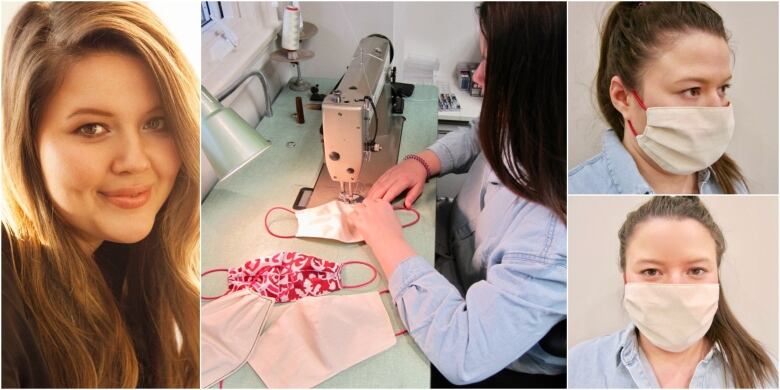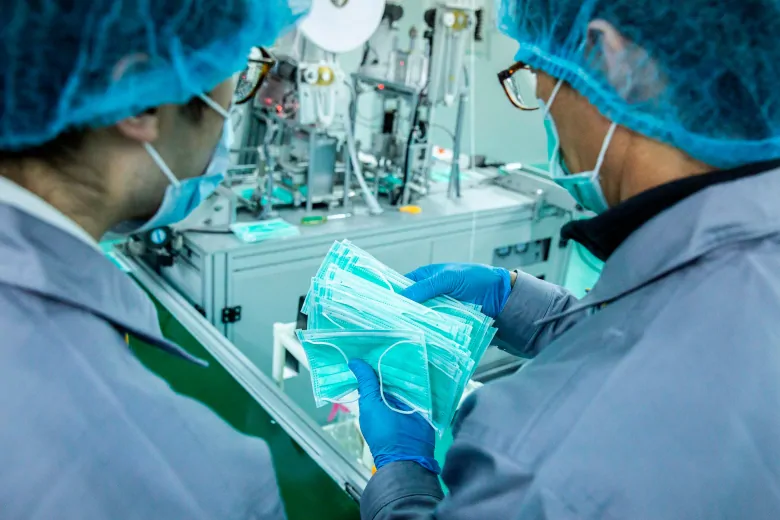Around the globe, companies of all stripes have been pivoting to aid in the fight against the coronavirus — including the apparel industry. Companies, as well as individuals, are shifting from their usual sartorial creations to rapidly producing masks, gowns and more.

Like many, Hilary MacMillan has been glued to the news amid the coronavirus pandemic. But when the Toronto fashion designer began seeing stories raising the alarm about a shortage of masks, gowns and other personal protective equipment, she was moved to action.
“We wanted to kind of get on the ground and see if it’s something we could help out with, before it gets to the point when there’s nothing available,” said the womenswear designer.
After just a few days of work this past week, MacMillan and her two seamstresses (who were each sewing from home) completed 100 non-medical grade masks, with the initial batch headed to staff at a local pharmacy. An organization representing in-home personal support workers has been in touch about next week’s batch, with MacMillan aiming to produce 100 a week for organizations requesting them.
“What we’re trying to do is create masks for the vulnerable and other workers who have nothing available,” MacMillan said.
“It’s nice to keep busy. It’s nice to feel like we’re not just watching, but that we’re helping out.”

Around the globe, companies of all stripes have been pivoting to aid in the fight against the coronavirus, from distilleries producing hand sanitizers to auto parts manufacturers and vacuum companies exploring how to make ventilators.
The apparel industry has also joined in. Companies such as luxury house LVMH and Canadian underwear brand Knix purchased and donated medical-grade protective gear to health authorities.
If @NYGovCuomo says we need masks my team will help make some. I have a full sewing team still on staff working from home that can help.
And everyone from retailers H&M and Gap to designers like Ralph Lauren and Prada to outerwear brand Canada Goose is shifting from their usual output to rapid production of masks, gowns and more.
‘You can’t wear the same equipment all day’
For health-care workers, personal protective equipment (PPE) provides a barrier between health-care workers and potential sources of infectious diseases. It includes items such as gloves, gowns, lab coats, shoe coverings, goggles, face shields and more.
Used in conjuction with specific infection control procedures, PPE is a vital resource. But amid the coronavirus pandemic, PPE is being rapidly sapped as front line health-care workers cross paths with, test and treat thousands of people.
“You can’t wear the same equipment all day. This is why they go through a lot of [PPE] because they have to change it between patients,” said Jan Chappel, senior technical specialist at the Canadian Centre for Occupational Health and Safety.
You don’t want to bring the disease to the next patient and the next.– Jan Chappel, of Canadian Centre for Occupational Health and Safety
“You don’t want to bring the disease to the next patient and the next,” she continued, adding that PPE would need to be worn by anyone coming into contact with an infectious disease patient — from doctors and nurses to cleaning staff making the rounds.

Must use specific materials
There are also speci

